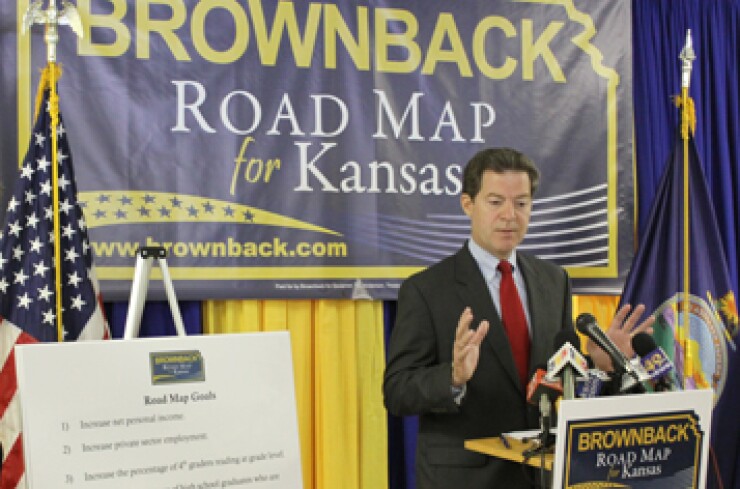
DALLAS - Schools in eight Kansas districts closed earlier than expected as funds proved insufficient to complete the full school year.
The early closings came last week as Gov. Sam Brownback and the Kansas Legislature struggled to resolve a fiscal crisis.
Under budget adjustments in the current fiscal year, aid to school districts fell by $54 million as a court case challenging school funding continued. Until the legislature can come up with a new funding formula that satisfies state court directives, Brownback authorized a block grant system for the schools.
With the block grant system in place, school districts across Kansas are reporting that they are making budget cuts or other adjustments, according to the Kansas Association of School Boards.
Supporters of the new block grant school finance plan say it increases total funding to public schools, gives districts more flexibility in how it can spend state dollars and will provide stability to school funding.
However, KASB research shows the dollar increases from the state are for the most part bottled up in employer pension funding and property tax relief.
"That doesn't buy books and supplies, nor does it take into account rising insurance and utility costs," a KASB statement said. "And the block grants -- unlike the school finance formula it replaced -- make no accommodation for increasing enrollment or increasing student needs."
Former Kansas Budget Director Duane Goosen said the idea that tax cuts enacted at Brownback's behest would lead to economic growth has proven false.
"Also proving false was the idea that Kansas could easily cut expenses," Goosen wrote on his blog
Goosen, senior fellow at the Kansas Center for Economic Growth, said revenue for the fiscal year starting July 1 is still $800 million short of balance.
"Ongoing expenses, calculated conservatively, are $6.5 billion and rising, while income has fallen to $5.7 billion annually for the foreseeable future," Goosen said.





